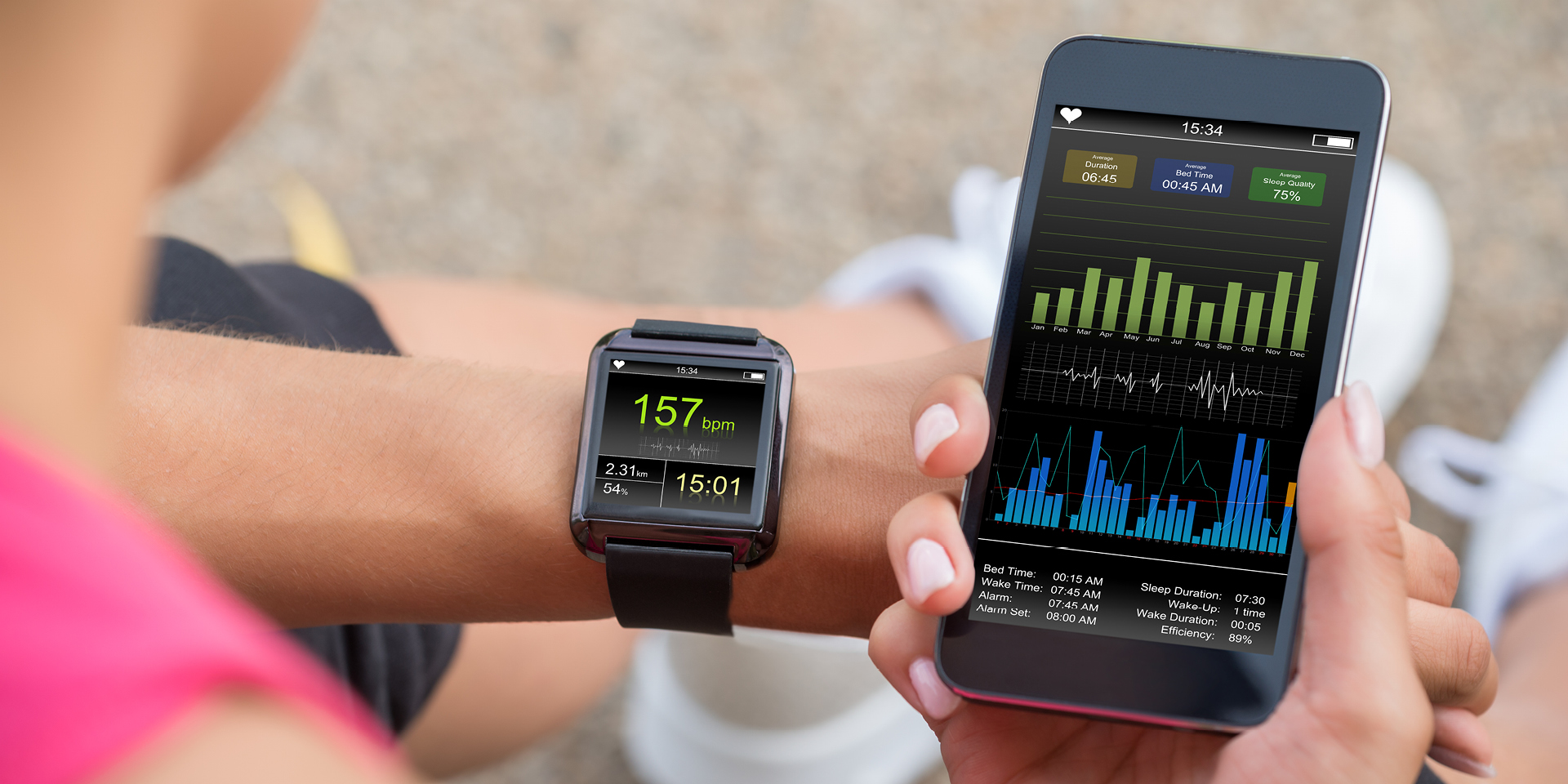About 21 percent of Americans regularly wear a smartwatch or fitness tracker, according to a 2019 Pew Research Center survey, and 85 percent reported owning a smartphone in 2021.
With the widespread use of smart technology, many of us are tracking our heart rates with smartphones and smartwatches, but how does this technology work and is it beneficial?
Doylestown Health electrophysiologist Robert Sangrigoli, MD, is an expert in diagnosing and managing heart rhythm disorders. Though he relies on medical grade technologies when evaluating patients, many patients ask him about consumer grade smart technology.
How do smartwatches measure heart rate?
“Smartphones and smartwatches work differently in how they can detect heart rhythm,” explains Dr. Sangrigoli. “Smartwatches use a sensor on the back of the watch, which is in direct contact with the skin. The watch periodically assesses heart rate and rhythm and, if the watch detects an abnormal rate or rhythm, the wearer can place a finger on the crown of the watch and create something that looks like a standard ECG,” according to Dr. Sangrigoli. The wearer can save and download this data, and even send it to a health care provider.
Smartphones offer similar capabilities
“Smartphones use photoplethysmography (PPG), an inexpensive and common technology that’s included in all smartphones. The PPG sensors can detect changes in tissue blood volume that results from pulses created by a heartbeat,” explains Dr. Sangrigoli. An LED light source flashes from the phone’s camera illuminating the tissue underneath a finger, and a photodetector (the camera) detects changes in light intensity through the tissue. “These variations in intensity occur as the pulse changes during heartbeats, he says.”
Talk to your doctor
“While no one needs a prescription for consumer grade technologies, it’s best to work in concert with your physician in order to better understand the value as well as the limitations of these technologies,” says Dr. Sangrigoli.
Physicians rely on medical grade technology to confirm an irregular heartbeat
Physicians use medical grade monitors or an electrocardiogram (EKG or ECG) — the gold standard for diagnosing an irregular heartbeat (arrhythmia), according to Dr. Sangrigoli. A medical test performed in a doctor’s office or outpatient center, an EKG monitors the heart's electrical activity and provides information about heart rhythm, heart rate, the size and position of heart chambers and the effects of drugs or devices used to regulate the heart.
The Future of Heart Smart Tech
“While smartwatches and similar technologies can be expensive, many smartphone apps are free and provide an opportunity for people to monitor their rhythms over an extended period,” says Dr. Sangrigoli. “This technology is relatively new and easy to use. Future generations are likely to provide more accurate rhythm assessments.”
AFib Center of Doylestown Health:
Expert AFib Care, Close to Home
The most common irregular heartbeat, Atrial Fibrillation (AFib) starts when the electrical signals that control the heart become disorganized causing an irregular heartbeat. This inefficient pumping slows blood flow through the heart’s upper chambers (atria). Untreated AFib can lead to complications such as stroke and heart failure.
The AFib Center of Doylestown Health’s Woodall Center for Heart and Vascular Care is a Doylestown Health's Afib Center is a high-volume center dedicated to the diagnosis and treatment of degenerative heart rhythm disorder, heart rhythm problems, including palpitations and arrhythmia, and atrial fibrillation (AFib). Our expert electrophysiologists handle specialized and complex cases to treat irregular heartbeat using the latest technology and techniques.
About Doylestown Health’s Atrial Fibrillation (AFib) Center
Doylestown Health’s AFib Center is a high-volume center in the treatment of heart arrhythmia conditions including atrial fibrillation ablation. Our electrophysiologists handle specialized and complex cases to treat irregular heartbeat using the latest technology and techniques. Our success rates are comparable to the leading AFib centers across the United States.


